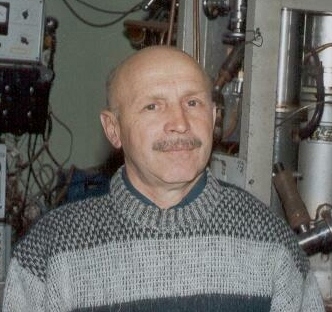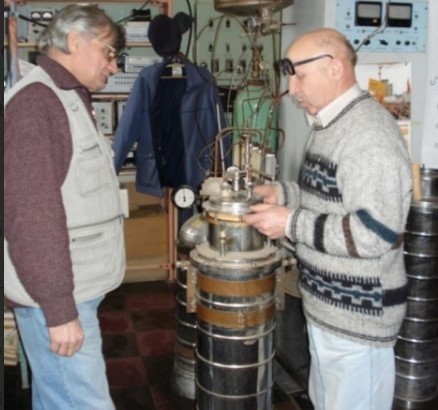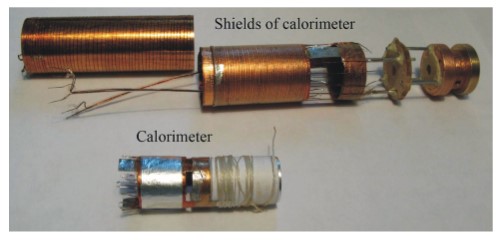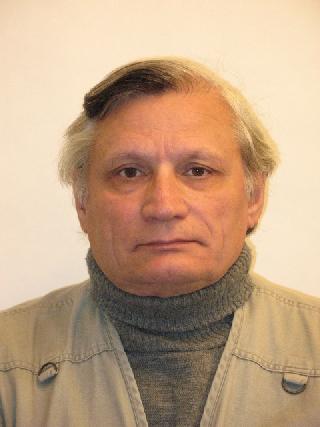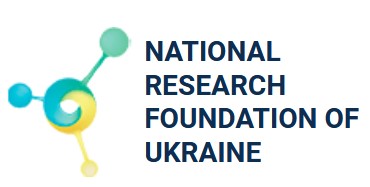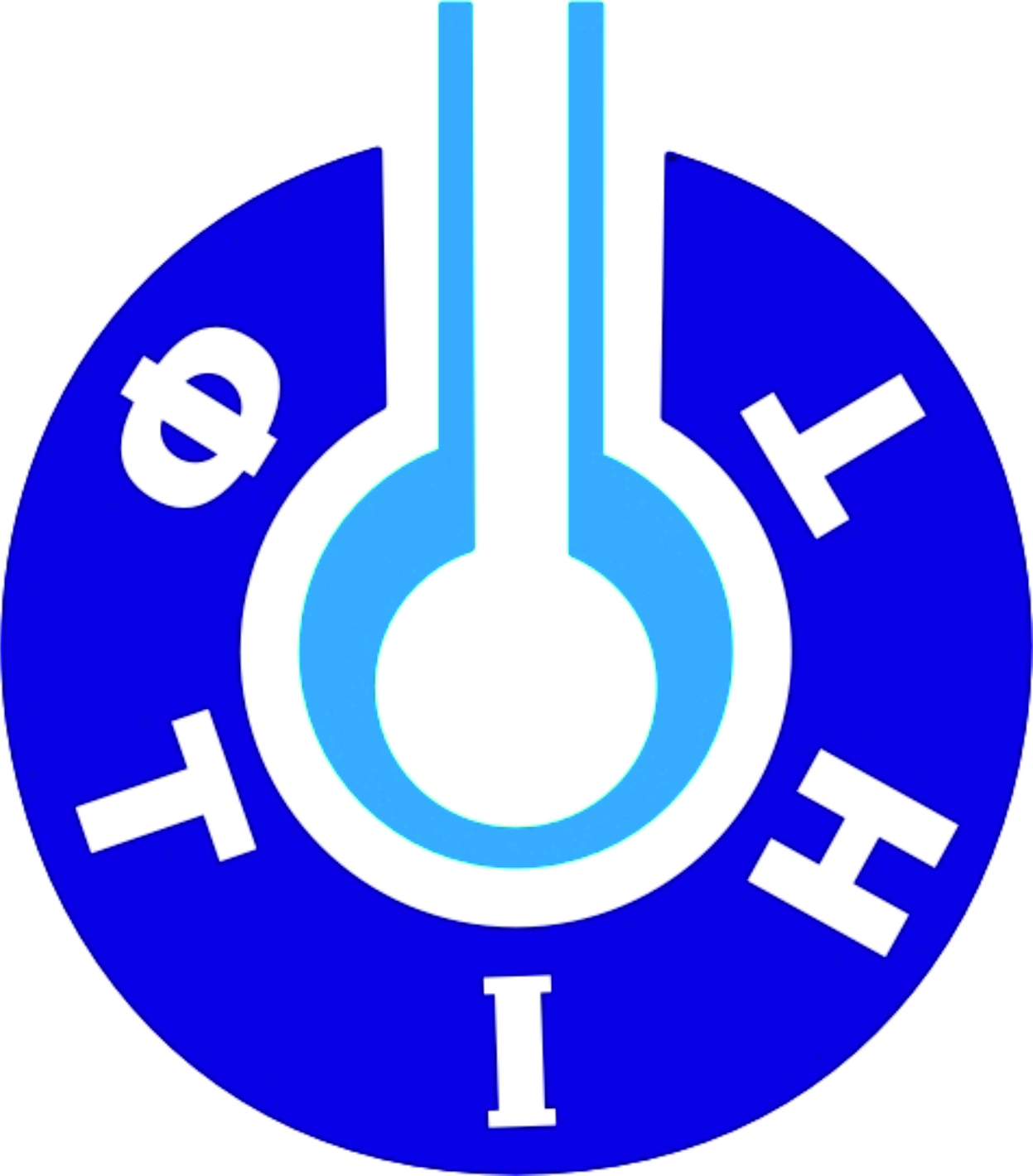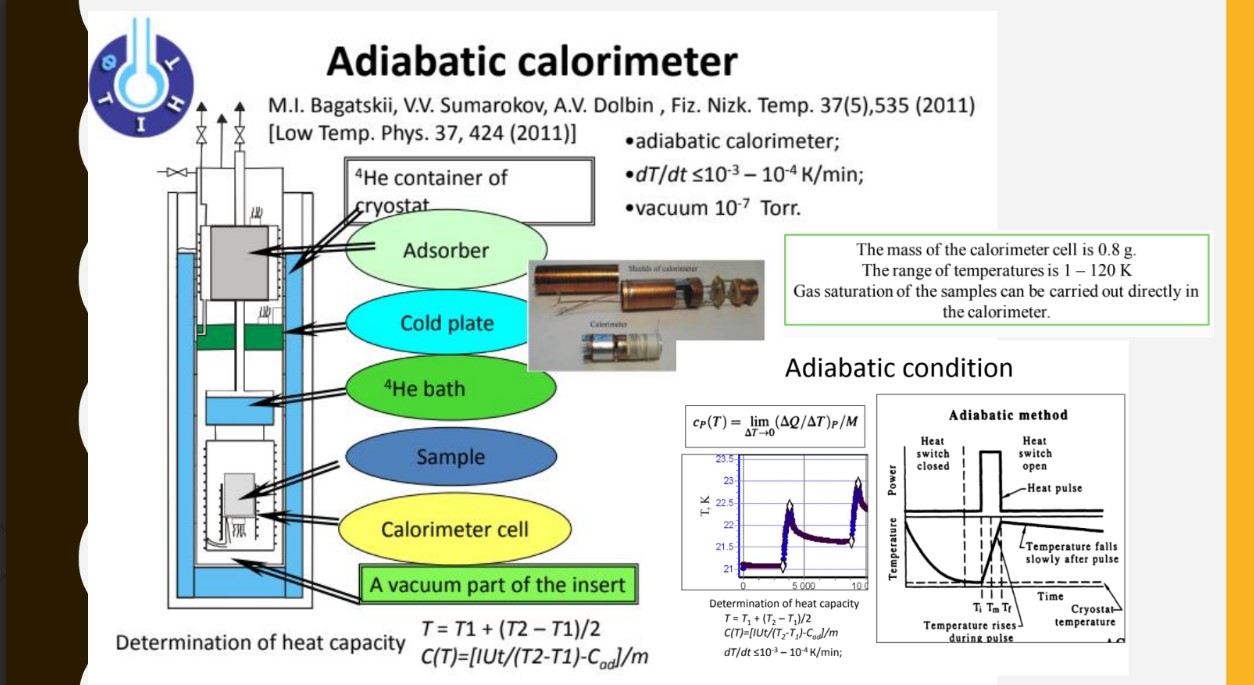
Adiabatic calorimeter was designed in ILTPE NASU so that allows precision measurements of the heat
capacity of carbon nanomaterials and 1D chains of adsorbed gas impurities on the outer surface of bundles of single-walled
carbon nanotubes. Measurements of heat capacity provide information about the specific phase transitions and
quantum phenomena in solids including temperature behaviour of heat capacity,
heats of phase transition, conversion, quantum diffusion (configuration relaxation).
[Low Temp. Phys.42, 788 (2016)]. Scatch of the Low-temperature adiabatic calorimeter for studying
the heat capacity of solids and nanomamterials is shown in Fig. above.
Heat capacity of 1D chains of Xe atoms adsorbed in the grooves of c-
SWСNTs bundles
The article "Experimental heat capacity of 1D chains of Xe atoms adsorbed in the grooves of c-
SWСNTs bundles: contributions of vibrations and spatial redistribution of atoms" [Low Temp. Phys. 49(8), 979 (2023)]
was awarded on the Final scientific conference of the B.I. Verkin Institute of Low Temperature Physics and Engineering,
NAS of Ukraine in 2023.
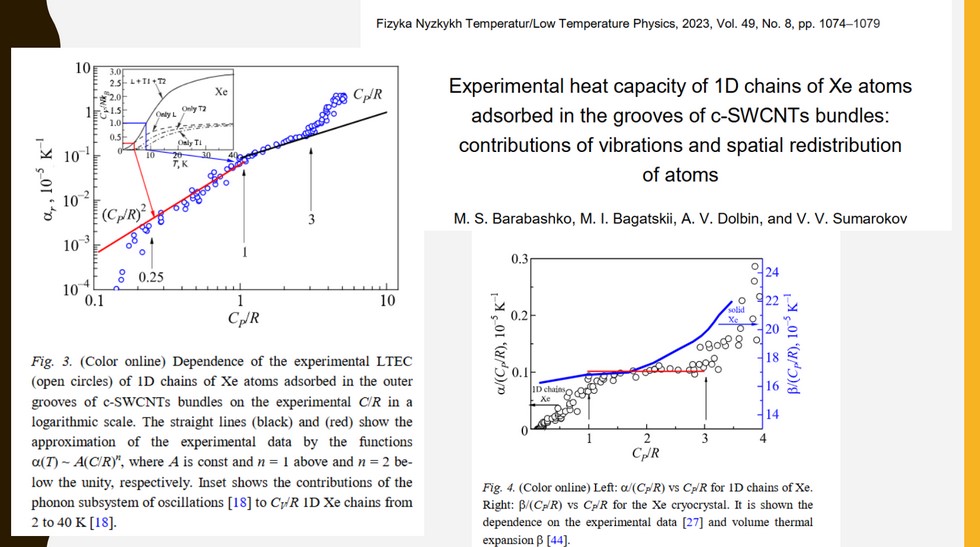
The group maintains a continuous scientific information exchange with researchers
in different countries in the frame of the regular International seminars
"Heat Capacity and Thermal Conductivity of Solids at Low Temperatures".
On cooperation bases with the Department of Experimental
Physics Umea University (Sweden) have been performed complex of study of the heat
capacity of fullerite C60 (pure and doped with various gases).
Some principal results about the heat capacity of the carbon nanotubes were obtained in
cooperation with the co-authors from Institute of Low Temperature and Structure Research
PAS (Wroclaw, Poland).
The specific heat of thermally reduced graphene oxide (trGO) was studied in the
temperature range from 0.3 to 275 K. It has been established that in the temperature
range of 0.3–6 K there is an anomalous behavior of the temperature dependence of the
heat capacity of trGO is due to the influence of impurities and defects,
structural features in trGO. [Low Temp. Phys. 50(2), 185-187 (2024)].
The influence of defects and geometric sizes of multi-walled carbon nabotubes on their heat capacity
was experimentally studied. The heat capacity of MWCNTs modified by grinding and oxidation with different
average outer diameters demonstate the effects of size and dimensionality. Therefore, the character of
the temperature dependences of the specific heat of ground and ground-oxidized MWCNTs
with various diameters differs fundamentally below ≈140 K [Thermal Science and Engineering Progress, 26, 101097 (2021)].
Dr. M.I. Bagatskii received the
Honorary Certificate of the National Academy of Sciences of Ukraine in 2009 for
professional achievements.
